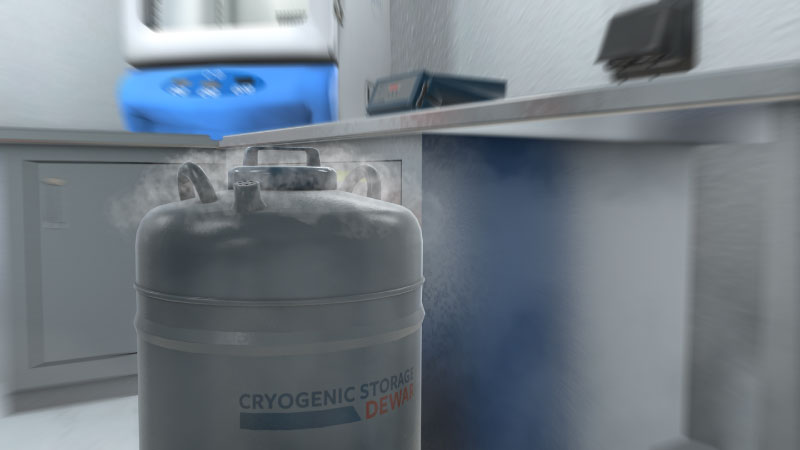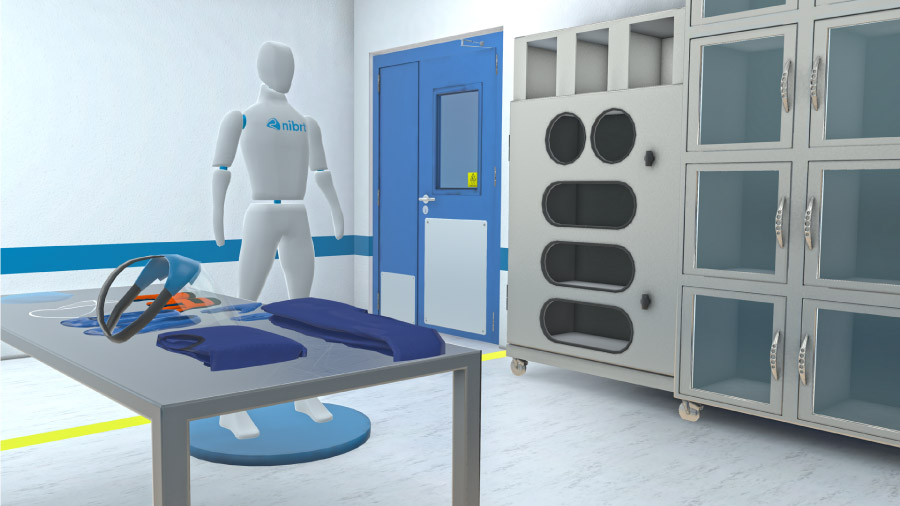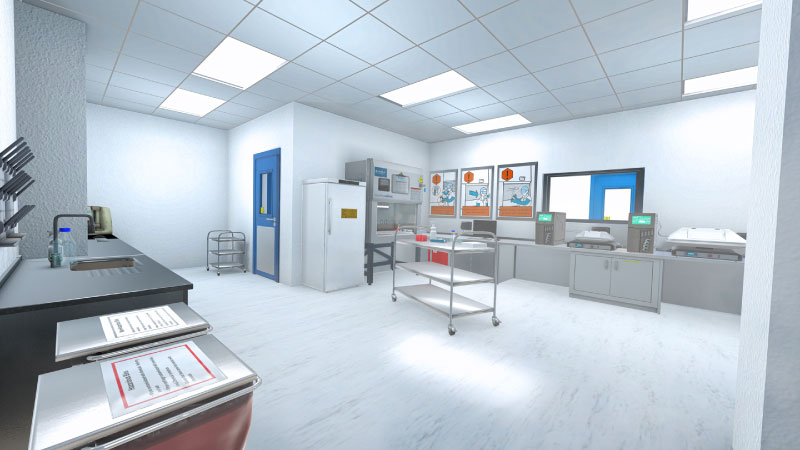Mersus are working with the National Institute for Bioprocessing Research and Training (NIBRT) and Boston Consulting Group to develop training courses using Virtual Reality. For this project Mersus focused on producing a single course procedure within Virtual Reality.
The team captured a trainee performing the procedure using 360° cameras mounted on the trainees heads and regular cameras to get the trainees body movement and placement in the scene. Each individual section of the procedure was captured in great detail in order to have the most accurate information when digitising later. Photo references of each piece of equipment was taken for modelling and texturing reference during production.


Back at the Mersus’s studio, the footage was edited together for viewing and each of the interactions were meticulously observed and categorised in writing. Then they were added to a narrative document that outlined how the VR application would work from start to finish. With the narrative document signed off from the client, the team worked on storyboarding how the application would look and function.
Simultaneously, 3D modelling, texturing, particle effects, animations and the code structure commenced, to avoid bottlenecks as the project progressed. Concept art, user interface designs and storyboards were compiled together into a design document for the clients approval. With NIBRT’s sign-off on the design document, the team knew exactly how each interaction would work and the process of bringing together every element of the procedure into the environment began. Once the team reached a Beta version of the project, the application was put through vigorous user testing in order to find and classify any bugs or issues. With every known bug logged, each one of these were dealt in order of importance. With user testing completed, a version was shared with the client for external testing. With minor issues solved, the application moved to release.
NIBRT worked very closely with Mersus in building a hugely valuable Virtual Reality training simulation of a complex manual process performed in the biopharmaceutical industry. While working in biopharma it can be a challenge to adequately train colleagues on the techniques and practices around complex processing steps without potentially impacting product quality. The use of VR for client training has allowed us to effectively train individuals on these techniques in a realistically simulated cleanroom environment. Thus, our trainees can train on the basics in the classroom until they feel comfortable with the task at hand, before graduating to a more tightly controlled environment. We found Mersus to be highly efficient and thorough.
They strive for excellence in their work with a focus on customer satisfaction. They liaised closely with us to build exactly the training simulation we required, while giving sound advice on graphics and features in order to optimize the learning process. Mersus colleagues remained in frequent contact with us to track progress and to ensure our needs were met, all the while completing the project within a very short timeframe. We would highly recommend the team at Mersus in creating a VR application. Their knowledge of the technology is first class and they are on board to give assistance every step of the way.
Aoife Barron,
Senior Bioprocessing Trainer, NIBRT
